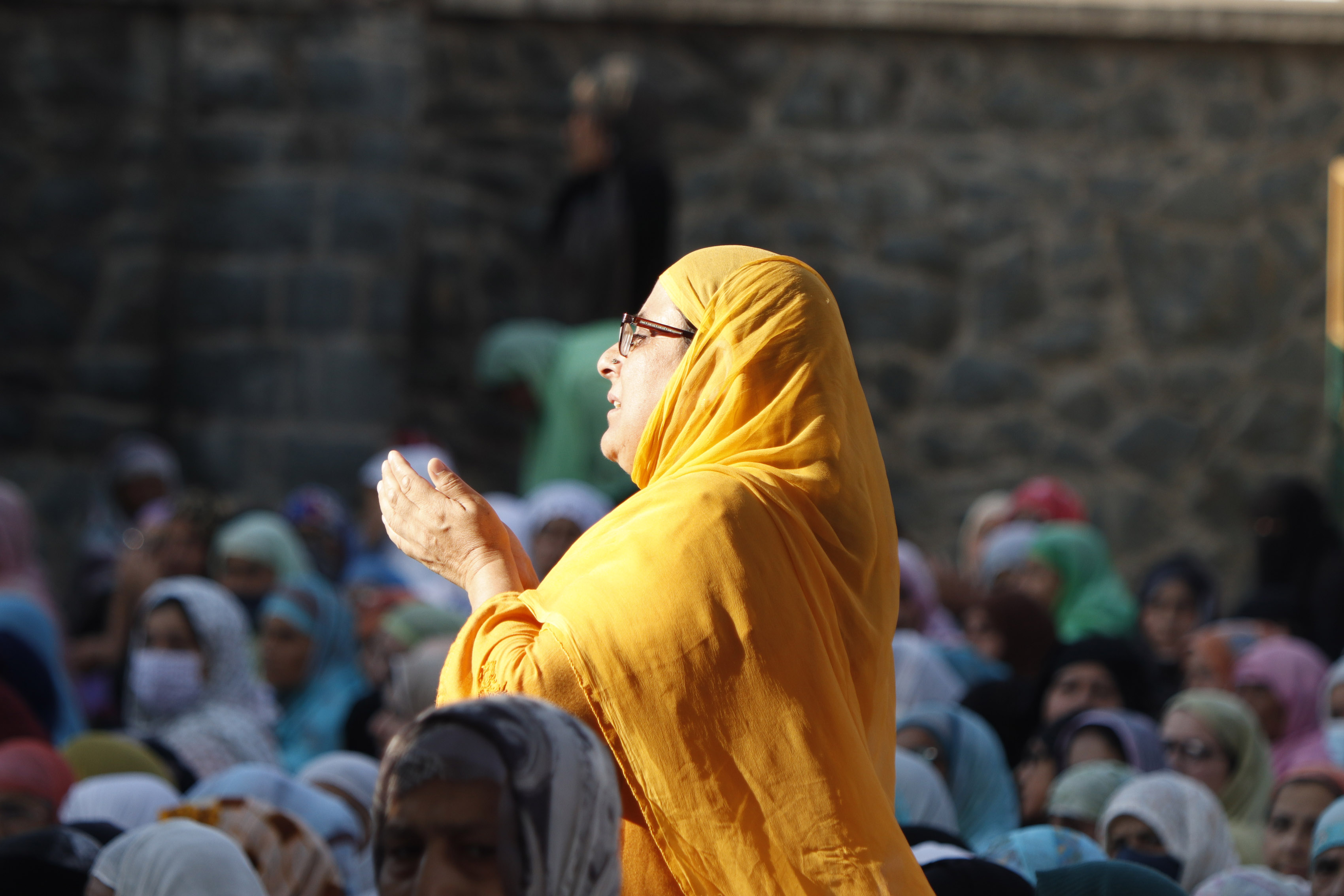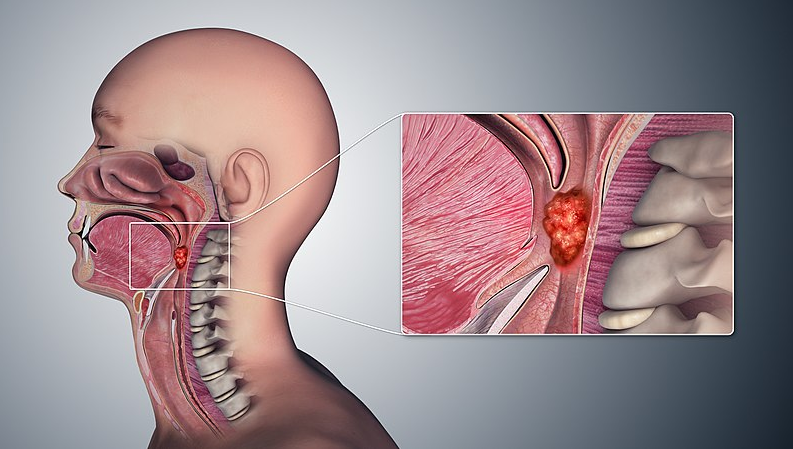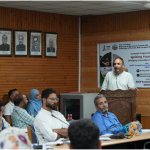Dr. RABIYA YASEEN BAZAZ
I reached Dargah with my sister around 1.45 P.M. for offering congregation prayers. Even if there was enough space available in the main garden yet for some unknown reasons I saw women moving all over the place. They were looking for some clean place. We tried to sit in the garden as it was having well managed rooftop and flooring system but the female guard very rudely told us not to sit there. I refused to get up and told her since here is no male so we can sit here but that female guard told us, “Males are on the way and how can you offer prayers with them you have a dog face, female place is always behind the males……”.She called her male guard and forced us to leave the place. In the absence of any space we couldn’t offer congregation prayers (Haseena, 45).
The Hazratbal Shrine, popularly known as Dargha Sharif is a Muslim Shrine located in Hazratbal locality of Srinagar in Jammu and Kashmir. The Dargha has inner sanctums and gardens where prayers are being offered. The gardens have appropriate arrangements for prayers. Unlike in other Mosques of Srinagar, in the Dargha women are allowed to offer prayers. However inside the Dargha women are subjected to typical form of discrimination where women are not provided with appropriate and descent space for offering prayers. The cultural patriarchal standards dictate whether there is a place for women to offer prayers or not. All the appropriate places within the shrine like the inner sanctums and gardens especially during congregation prayers remain reserved for males. The authorities are on duty to protect men’s spaces no matter at what time they arrive. Women, who travel to the Dargha with their children, typically from remote locations, are not given the proper space for praying. They are relegated to small open place and are forced to pray in the sweltering sun in the barren unclean field where stray dogs continue to wander.
I am from Ganderbal, and I departed early from my house with my one-year-old child to offer Friday congregation prayers at the Dargha. I reached Dargha around 1.00 P.M. and the prayers took place around 2.30. P.M. During the congregation prayers women are not allowed to offer prayers inside the inner sanctums hence I reserve a place in the garden. After an hour, female guard came to me and told me to leave the place as it is reserved for males. I requested for giving some space near the shade atleast to the women who are with kids but she told me very rudely…why you brought your kid with you…and forced me to vacate the place (Farha, 32).
Holm (1994) describes these restrictions as the devaluation of women in religion. Inhuman treatment of women within the place of worship is similar to the practice of untouchability. These incidences perpetuate cultural- practices that are derogatory to women. This restriction offends the concept of gender justice and put negative impact on women and their ability to have normal social interactions with the family members as well as with the rest of the society.
Feminists of faith argue that religion itself is not the core cause of misogyny, but rather that male-dominated religious traditions reflect broader structural inequalities that oppress and denigrate women. For Example like Simone de Beauvoir, 1953 argues that religion is oppressive tool used by men to control women similarly El Saadawi (1980) said that religion is not oppressive itself. It is the male dominance of religion that is the problem.
Gender based discrimination in a worship place is clear violation of the constitutional mandate of equality as well as of Article 25(1) of the Fundamental Rights of the Indian Constitution which stipulates that all persons are equally entitled to practice religion and to worship anywhere they want. Even Islamic law does not prohibit women from praying in mosques.
Despite constitutional and religious values, there are numerous instances of discrimination against women when practicing their religion and performing rituals, particularly in public places of worship. For example, the Sabarimala temple in Kerala, the Shani Shingnapur temple in Maharashtra and the Haji Ali Dargah where women have been denied access to the inner shrine whereas in some incidences women are treated inhumanly within the worship place like in the case of Dargha Hazaratbal. These incidences of discrimination are based on patriarchy rather than religion and play an important role in sustaining gender inequality.
In the most recent published Gender Inequality Index, India is placed 130 out of more than 190 nations, and a specific stain is the issue of discrimination against women that is supported by religious dogmas. The Government and various stakeholders of Srinagar Kashmir need to probe into these grave issues. They need to prepare and educate communities that women deserve to be treated with respect and dignity in public worship place. It is the high time to realize that there is dire need of gender-sensitive religious legislation.
(The Author is working as an Assistant Professor (contractual) at the Centre for Women’s Studies and Research, University of Kashmir. She has completed her doctoral degree from the Department of Sociology, Aligarh Muslim University. She has authorised one book and has published numerous research papers in Scopus and Web of Science Journals. Email: [email protected], [email protected])








